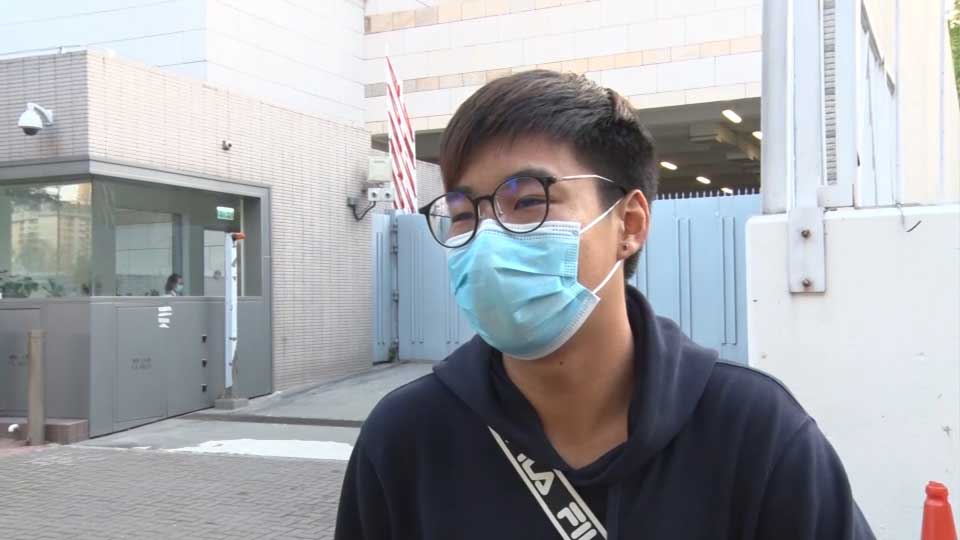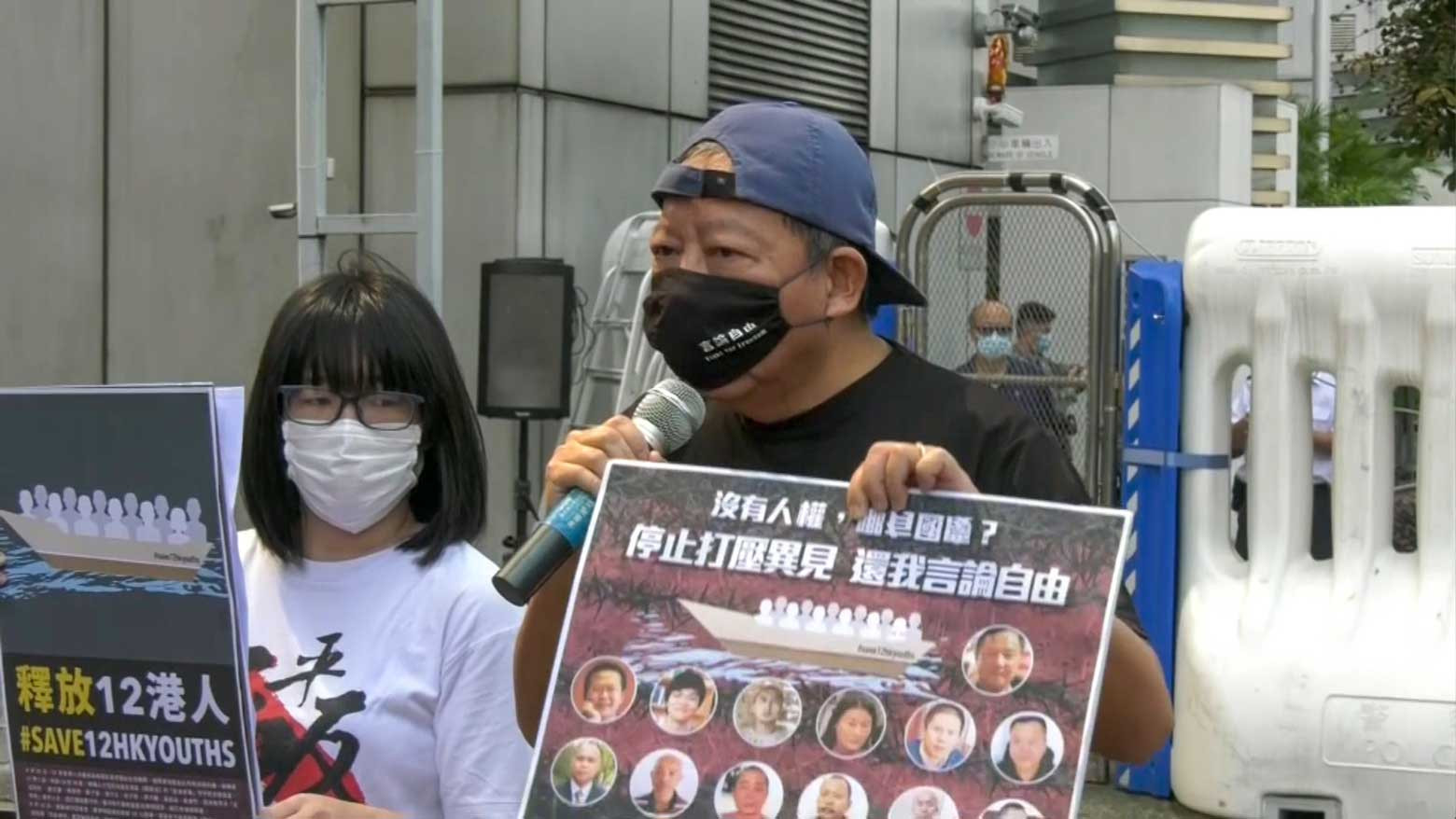"Hang in there, Joshua Wong! Hang in there, Agnes Chow! You are not alone!"
On December 2, a crowd surrounded prison vans that were leaving a Hong Kong court. The vans were transporting pro-democracy activists Joshua Wong and Agnes Chow, both charged with incitement and participation in an unauthorized assembly in relation to massive demonstrations last year. Both were sentenced to prison. The people surrounding the van turned on their smartphone torches — something that's become a symbol of the pro-democracy movement — and pointed them at the vehicle in an act of solidarity with the two activists. This has become a familiar scene since the Hong Kong government clamped down on pro-democracy movements and arrested many activists early last year.
Watch Video: 01:36
20-year-old university student Kelvin Mok checks the court schedule on social media almost every day and shows up outside once or twice a week. Those being transported in prison vans are neither his friends nor acquaintances, but Mok calls them his comrades nonetheless.
"I don't know which car my comrades are in, so I make it a point to run towards the first car coming out of the court and speak towards it," Mok says. "Some of the drivers slow down intentionally so we supporters can spend a moment longer with our comrades."
Mok says he began doing this after an experience in November 2019, when anti-government rallies began to escalate. One day, he went out to meet up with a friend when he was suddenly stopped by police and arrested for having a spanner in his bag. He claims he was looking after it for a friend. They detained him for 20 hours.
"I was lucky that nothing else happened," he says. "That's why I want to see off my comrades who've been convicted."
Mok says the national security law has robbed the activists in Hong Kong of justice, and that they intend to participate in as many pro-democracy activities as possible, no matter how small.

62-year-old activist Lee Cheuk-yan has been indicted on nine charges related to unauthorized assembly and is now out on bail. For many years, Lee organized an annual memorial in Hong Kong to commemorate the Tiananmen Square incident. But last year, Hong Kong police banned the event for the first time, citing coronavirus restrictions on public gatherings.
He is now working to digitize the collection of a museum dedicated to the incident, a project he started out of fear that the authorities may shut the physical location down.
"I have to continue this work I've been doing," he says.
Since the national security law came into effect, mass street demonstrations have almost completely disappeared, but Lee and other activists have been out on the streets, using a sound truck to get their message out. He says he knows it may land him in prison with his comrades.
"I'm prepared for it, because I think it will show my willingness to protest the national security law," he says. "I just want to stand my ground."

